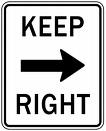In ancient religions, practiced by primitive cultures, it was customary to make sacrifices to sundry gods and idols. Some of the more sanguinary cults engaged in human sacrifice.
We like to consider such practices far removed from our civilized modern society. However, we make far more extravagant sacrifices to our sacred idols than the ancients ever dreamed of making.
While the ancients may have slaughtered the odd sheep or bull or virgin on the altar of an angry god, we sacrifice entire regions of our country, decimating their economies, wiping out employment for thousands of people, destroying their livelihoods and breaking up homes, creating widespread poverty and sending statistics on domestic violence, divorce, and drug abuse soaring through the roof, as once-productive and self-sufficient communities decline into indigence.
And to what powerful god are we making this enormous human sacrifice? Well, it’s not a god, exactly. It’s a Sacred Owl.
The Northwest Forest Plan (NWFP) was adopted in 1994 to “protect” the Sacred Owl. Nobody actually knew how many Sacred Owls existed at the time; nor did they know how many had existed in any previous period. Nobody had ever counted them. Instead, they created a model based on nesting habitat. Since Sacred Owls nest in “old growth,” and “old growth” was being reduced by logging, the model inferred that the Sacred Owl population must be declining also.
Based on this model, the powers that be concluded the Sacred Owl must be endangered. Since the Sacred Owl also requires younger stands and clearings for forage, the critical habitat designation was broadened to include most of the public forest lands in the Pacific Northwest. This opened the door for the environmental movement to litigate virtually any timber sale on public lands under the auspices of the Endangered Species Act.
Today, the environmentalists claim the Sacred Owl population is still declining at an alarming rate. So we must set aside even more land as “critical habitat,” sacrificing even more production, jobs, and communities. But, if the Sacred Owl population really is declining so rapidly, eighteen years after the NWFP was put into effect, then clearly the plan is not successful and should be scrapped. Why double down on a failed plan?
Perhaps, from the perspective of the environmental movement, the plan hasn’t really been a failure. Suppose, instead, it has been wildly successful. How could that be, if the Sacred Owl population is even worse off today than it was before the NWFP was implemented?
Let’s do a little thought experiment. What if the Sacred Owl was only a means to an end, rather than an end in itself? Suppose for a moment that the environmental movement wanted to eliminate logging on public lands. In order to accomplish that, they would need to find a law that would allow them to challenge any government timber sale and tie it up in litigation until the legal expenses exceeded the revenues.
The Endangered Species Act would serve that purpose well. They would just need to come up with an endangered species that lives in places where logging occurs. Of course, it couldn’t be just any endangered species, like an insect or rodent or fungus. It would have to be something cute and appealing, something cuddly-looking that people who live in cities would want to protect.
Enter the Spotted Owl. With apologies to Voltaire, if the Spotted Owl didn’t exist, the environmentalists would have had to invent him.
Serendipitously, the Sacred Owl has proven very lucrative for the environmental movement. They discovered another law, called the Equal Access to Justice Act, which requires the government to reimburse legal fees for the prevailing party in lawsuits against the federal government.
In the last four years alone, more than 570 lawsuits have been filed under the Endangered Species Act. When the environmentalists lose, it costs them very little because their attorneys belong to the movement. When they win, they can claim up to $500 an hour in attorney fees.
Just since 2009, U.S. taxpayers have paid the environmental movement more than $15 million in attorney fees for preventing the productive and sustainable use of natural resources on public lands.
So it’s easy to see why this owl is sacred to the environmental movement. It’s been very good to them. But how many more jobs, how many more communities, how many more local economies are we willing to sacrifice to this Sacred Owl, and to its high priests in the environmental movement, before we expose this dangerous cult for what it is? How many more sacrifices can our nation afford to make?







